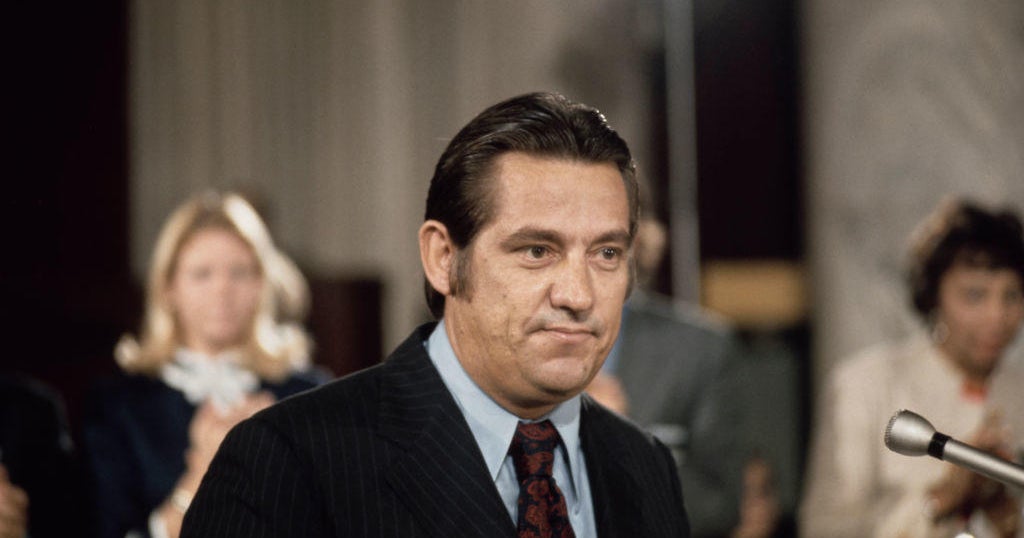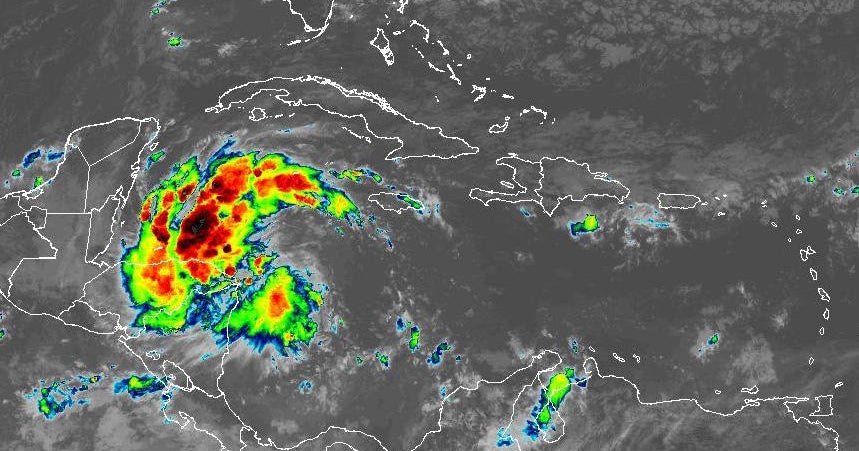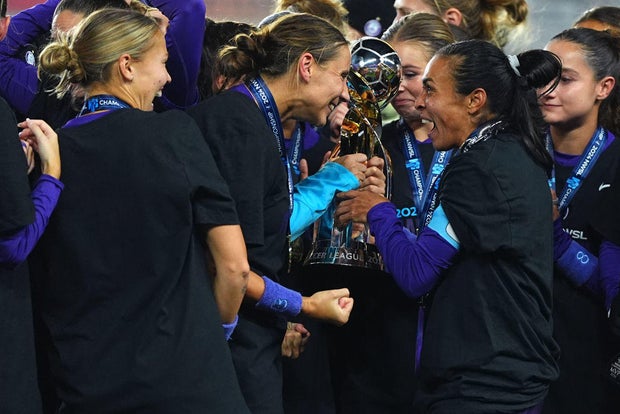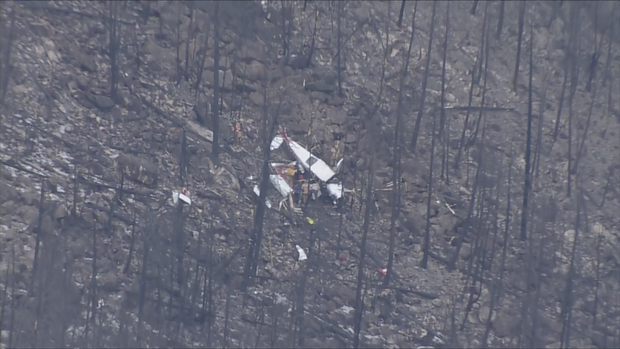CBS News
U.S. Coast Guard offloads $63 million of cocaine 2 days after shootout at sea sinks suspected drug smuggling boat

The U.S. Coast Guard said it offloaded more than 4,800 pounds of cocaine worth over $63 million at a port in Florida on Thursday — two days after officials said Coast Guard officers fired at and sank a speedboat suspected of smuggling drugs in the Caribbean Sea.
The cocaine offloaded on Thursday was the result of two operations off the coast of Puerto Cabello, Venezuela, the Coast Guard said in a social media post. The operation was conducted by a Royal Netherlands Navy patrol boat, which had a Coast Guard law enforcement detachment and helicopter interdiction tactical squadron on board.
The announcement of the cocaine seizures came just two days after authorities said the same Dutch navy ship and U.S. Coast Guard assets in the Caribbean Sea “identified a vessel suspected of smuggling narcotics in international waters.” Officials said in a news release Thursday that the suspected drug vessel, a speedboat, failed to stop early Tuesday morning when signaled and instead headed straight toward the Dutch patrol boat.
Dutch Navy officers and U.S. Coast Guard members on board the patrol boat fired their weapons at the speedboat “in self-defense and defense of others in response to the life-threatening situation,” officials said. The speedboat caught fire and sank, and three suspected smugglers went overboard and disappeared below the water, the Coast Guard said.
The U.S. Coast Guard, Royal Netherlands Navy and Dutch Caribbean Coast Guard suspended search efforts for the three suspects on Tuesday evening, officials said. There were no reported injuries to the Dutch and U.S. officers.
“The Coast Guard is America’s primary maritime law enforcement agency, and our crews work hard to safely bring suspected smugglers to face federal prosecution in the United States for alleged crimes,” Lt. Cmdr. John W. Beal said in a statement Thursday.
The cocaine seizure and shootout in the Caribbean Sea come about a week after a separate Coast Guard crew offloaded $468 million worth of cocaine in San Diego. That haul was the result of eight separate operations off the coasts of Mexico and Central and South America.
International drug traffickers routinely use different kinds of boats to move narcotics. In May, Italian police announced the seizure of a remote-controlled submarine likely intended to transport drugs as part of an international drug trafficking network. Also last month, the French navy said it seized 2.4 tons of cocaine from a Venezuelan fishing boat about 1,500 kilometers northeast of the Caribbean island of Martinique.
In March, authorities announced a massive cocaine shipment seizure in the Caribbean Sea off of Colombia after military ships and planes chased down a speedboat holding almost four tons of the drug.
Earlier that month, a British warship and an American patrol aircraft chased down a speedboat as its crew tried to flee and dump its cargo of drugs into the water near the U.S. Virgin Islands. British sailors and a U.S. Coast Guard team eventually recovered about 6,000 pounds of cocaine and other drugs, officials said.
Much larger semi-submersibles, which cannot go fully underwater, are popular among international drug traffickers as they can often elude detection by authorities. The so-called “narco-subs” are sometimes seized in Colombian waters while heading to the United States, Central America and Europe.
CBS News
Marta’s Orlando Pride defeat Washington Spirit for their first NWSL title

Barbra Banda scored in the 37th minute to give the Orlando Pride their first National Women’s Soccer League championship with a 1-0 victory over the Washington Spirit on Saturday night.
Banda dribbled into the right side of the box and made a move past a defender before kicking the ball on the ground with her left foot and past the goalkeeper. She became the first player in the NWSL to score in each round of the playoffs.
The Pride’s Angelina was nearly called for a push before passing it to Banda, but the VAR determined that the play was fair.
Kyle Rivas / Getty Images
The Spirit (20-7-2) controlled the game and outshot the Pride 25-9, had two more shots on goal and held onto possession 58% of the time. Rosemonde Kouassi had Washington’s best chance in the 47 minute when she headed a ball from about 10 yards away.
Orlando’s win gave Brazilian star Marta her first NWSL title. The 38-year-old Marta, considered arguably the greatest female soccer player of all time, joined the Orlando Pride in 2017 but had never reached an NWSL championship game until this year.
“(It’s a) magic moment for me because I’ve been in this club for so long and (to) wait for this moment, you know, so it’s… I’m just enjoy every single moment,” she told CBS News Friday ahead of the game. “…This year become like the best year in my club life.”
Top-seed Orlando (21-6-2) went unbeaten in its first 23 matches, a league record. They beat the Kansas City Current in the semifinals before hoisting the trophy at CPKC Stadium, their home field.
Orlando is the first team since 2019 to win the Shield and the title in the same year.
Washington had won its last five playoff games when trailing at the half, but that streak was broken with this loss.
CBS News
2 killed in U.S. Civil Air Patrol plane crash near Palisade Mountain in Northern Colorado

Two people were killed and a third was injured when a U.S. Civil Air Patrol plane crashed in Colorado’s Front Range Saturday morning.
The small passenger plane with three people aboard crashed near Storm Mountain and Palisade Mountain west of Loveland around 11:15 a.m., according to the Larimer County Sheriff’s Office. The plane belonged to the Civil Air Patrol, the civilian auxiliary wing of the U.S. Air Force, and was on a routine aerial photography training mission when it went down, officials said.
Pilot Susan Wolber and aerial photographer Jay Rhoten were identified by CAP as those killed and co-pilot Randall Settergren was identified as the person injured. Settergren was airlifted to an area hospital by a National Guard helicopter, where he is undergoing medical care.
CBS
“The volunteers of Civil Air Patrol are a valuable part of the Department of Military and Veterans Affairs, and the lifesaving work they do on a daily basis directly contributes to the public safety of Coloradans throughout the state,” Maj. Gen. Laura Clellan, adjutant general of the Colorado Department of Military and Veterans Affairs, said in a statement Saturday.
“We are devastated to hear of the loss of Susan Wolber and Jay Rhoten, and the injury of Randall Settergren, during a training mission in Larimer County. Our thoughts and deepest condolences are with the families of those involved in the crash,” Clellan continued. “I would also like to thank all of the first responders who assisted with rescue efforts.”
Palisade Mountain is in Larimer County, about 20 miles west of Loveland and about 65 miles northwest of Denver. The area is part of the burn scar of the Alexander Mountain Fire, which burned almost 10,000 acres in over two weeks this past summer.
The crash happened about 200 feet below the summit of Palisade Mountain in an area that includes tall trees and steep hills as part of the mountain range. Rescue crews were heard on radio traffic working to find a landing zone for rescue helicopters. No structures were impacted by the crash.
The plane crashed in “very rugged” and “extensive and rocky terrain,” Ali Adams, a Larimer County Sheriff’s Office spokeswoman, said at a news conference. First responders had to hike out to the site and the sole survivor was “severely injured” when responders finally got to them.
Rescue efforts were ongoing at 3:15 p.m., according to Adams, and recovery efforts for the two deceased people’s bodies could take several days.
Several agencies responded, including the Loveland Fire Rescue Authority, Thompson Valley EMS and the National Guard.
The Larimer County Sheriff’s Office is the lead agency investigating the crash and the Federal Aviation Administration and National Transportation Safety Board will assist, according to Adams. The NTSB said it too was investigating the crash and identified the plane as a Cessna 182.
“This is one of those incidents that is really low frequency; it doesn’t happen really often, but unfortunately, our first responders have had more than their fair share of responses,” Adams said.
George Solheim lives in the area of the crash. He described conditions as “extremely windy” on Saturday and heard the plane just prior to the crash. He says he could hear “loud ‘throttle up/down’ immediately prior to sudden silence at (the) time of (the) crash. Couldn’t hear sounds of impact from here.”
Colorado Gov. Jared Polis extended his sympathy to the families of the victims in a statement Saturday evening:
“I’m saddened to hear of the loss of two dedicated Civil Air Patrol members, Pilot Susan Wolber and aerial photographer Jay Rhoten, who lost their lives in today’s crash and my thoughts are with their families, friends and colleagues. These individuals, along with survivor co-pilot Randall Settergren, who was injured, served the Civil Air Patrol as volunteers who wanted to help make Colorado a better, safer place for all. The State of Colorado is grateful for their commitment to service and it will not be forgotten. I also want to thank the first responders who assisted with the rescue and recovery efforts.”
CBS News
Fred Harris, former Democratic U.S. senator and presidential candidate, dies at 94

Fred Harris, a former U.S. senator from Oklahoma, presidential hopeful and populist who championed Democratic Party reforms in the turbulent 1960s, died Saturday. He was 94.
Harris’ wife, Margaret Elliston, confirmed his death to The Associated Press. He had lived in New Mexico since 1976.
“Fred Harris passed peacefully early this morning of natural causes. He was 94. He was a wonderful and beloved man. His memory is a blessing,” Elliston said in a text message.
Bettmann Archive/Getty Images
Harris served eight years in the Senate, first winning in 1964 to fill a vacancy, and made unsuccessful bid for the presidency in 1976.
“I am deeply saddened to learn of the passing of my longtime friend Fred Harris today,” Democratic New Mexico Gov. Michelle Lujan Grisham wrote in a post to social media. “Harris was a towering presence in politics and in academia, and his work over many decades improved New Mexico and the nation. He will be greatly missed.”
Democratic Sen. Martin Heinrich of New Mexico said in a statement that “New Mexico and our nation have lost a giant,” describing him as a “tireless champion of civil rights, tribal sovereignty and working families.”
It fell to Harris, as chairman of the Democratic National Committee in 1969 and 1970, to help heal the party’s wounds from the tumultuous national convention in 1968 when protesters and police clashed in Chicago.
He ushered in rule changes that led to more women and minorities as convention delegates and in leadership positions.
“I think it’s worked wonderfully,” Harris recalled in 2004, when he was a delegate to the Democratic National Convention in Boston. “It’s made the selection much more legitimate and democratic.”
“The Democratic Party was not democratic, and many of the delegations were pretty much boss-controlled or -dominated. And in the South, there was terrible discrimination against African Americans,” he said.
Harris ran unsuccessfully for the Democratic presidential nomination in 1976, quitting after poor showings in early contests, including a fourth-place win in New Hampshire. The more moderate Jimmy Carter went on to win the presidency.
Harris moved to New Mexico that year and became a political science professor at the University of New Mexico. He wrote and edited more than a dozen books, mostly on politics and Congress. In 1999 he broadened his writings with a mystery set in Depression-era Oklahoma.
Throughout his political career, Harris was a leading liberal voice for civil rights and anti-poverty programs to help minorities and the disadvantaged. Along with his first wife, LaDonna, a Comanche, he also was active in Native American issues.
“I’ve always called myself a populist or progressive,” Harris said in a 1998 interview. “I’m against concentrated power. I don’t like the power of money in politics. I think we ought to have programs for the middle class and working class.”
“Today ‘populism’ is often a dirty word because of how certain leaders wield power,” Heinrich said in his statement Saturday. “But Fred represented a different brand of populism — one that was never mean or exclusionary. Instead, Fred focused his work and attention on regular people who are often overlooked by the political class.”
Harris was a member of the National Advisory Commission on Civil Disorders, the so-called Kerner Commission, appointed by then-President Lyndon Johnson to investigate the urban riots of the late 1960s.
The commission’s groundbreaking report in 1968 declared, “our nation is moving toward two societies, one black, one white — separate and unequal.”
Thirty years later, Harris co-wrote a report that concluded the commission’s “prophecy has come to pass.”
“The rich are getting richer, the poor are getting poorer and minorities are suffering disproportionately,” said the report by Harris and Lynn A. Curtis, president of the Milton S. Eisenhower Foundation, which continued the work of the commission.
Norman Ornstein of the American Enterprise Institute said Harris rose to prominence in Congress as a “fiery populist.”
“That resonates with people…the notion of the average person against the elite,” Ornstein said. “Fred Harris had a real ability to articulate those concerns, particularly of the downtrodden.”
In 1968, Harris served as co-chairman of the presidential campaign of then-Vice President Hubert Humphrey. He and others pressed Humphrey to use the convention to break with Johnson on the Vietnam War. But Humphrey waited to do so until late in the campaign, and narrowly lost to Republican Richard Nixon.
“That was the worst year of my life, ’68. We had Dr. Martin Luther King killed. We had my Senate seatmate Robert Kennedy killed and then we had this terrible convention,” Harris said in 1996.
“I left the convention — because of the terrible disorders and the way they had been handled and the failure to adopt a new peace platform — really downhearted.”
After assuming the Democratic Party leadership post, Harris appointed commissions that recommended reforms in the procedures for selecting delegates and presidential nominees. While lauding the greater openness and diversity, he said there had been a side effect: “It’s much to the good. But the one result of it is that conventions today are ratifying conventions. So it’s hard to make them interesting.”
“My own thought is they ought to be shortened to a couple of days. But they are still worth having, I think, as a way to adopt a platform, as a kind of pep rally, as a way to get people together in a kind of coalition-building,” he said.
Harris was born Nov. 13, 1930, in a two-room farmhouse near Walters, in southwestern Oklahoma, about 15 miles from the Texas line. The home had no electricity, indoor toilet or running water.
At age 5 he was working on the farm and received 10 cents a day to drive a horse in circles to supply power for a hay bailer.
He worked part-time as a janitor and printer’s assistant to help for his education at University of Oklahoma. He earned a bachelor’s degree in 1952, majoring in political science and history. He received a law degree from the University of Oklahoma in 1954, and then moved to Lawton to practice.
In 1956, he won election to the Oklahoma state Senate and served for eight years. In 1964, he launched his career in national politics in the race to replace Sen. Robert S. Kerr, who died in January 1963.
Harris won the Democratic nomination in a runoff election against J. Howard Edmondson, who left the governorship to fill Kerr’s vacancy until the next election. In the general election, Harris defeated an Oklahoma sports legend — Charles “Bud” Wilkinson, who had coached OU football for 17 years.
Harris won a six-year term in 1966 but left the Senate in 1972 when there were doubts that he, as a left-leaning Democrat, could win reelection.
Harris married his high school sweetheart, LaDonna Vita Crawford, in 1949, and had three children, Kathryn, Byron and Laura. After the couple divorced, Harris married Margaret Elliston in 1983. A complete list of survivors was not immediately available Saturday.











